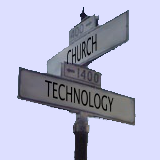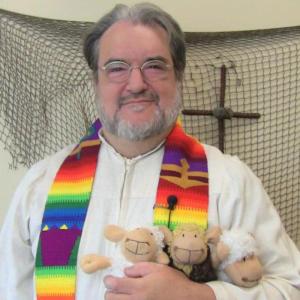Social Media – Your Electronic Parking Lot
What is Social Media?
Social media is a bucket that holds various ways that people share or exchange information, ideas, and pictures and videos in virtual communities and networks. It includes things like FaceBook, Twitter, G+, Tumblr, YouTube, and even FourSquare, and Yelp. Some online games also include aspects of social media to allow their gamers to interact with each other. World of Warcraft is an example.
The type of interaction depends on the social network. For instance, Twitter is for very short text statements. FaceBook allows longer text, pictures, and even videos. YouTube is for sharing videos. Yelp is for sharing information and reviews of locations people visit.
Like any other form of communication, the church can use social media to benefit ministry but only if you take the time to learn how to use the networks effectively and appropriately.
Look up “netiquette” for some broad rules but also pay attention to how others comments are received and commented on. As an example, typing in ALL CAPS is considered yelling and is frowned upon in nearly all circles.
Social Media is for conversations
We all know that a lot of important conversation and even some church business happens in the parking lot before or after worship. In the same way, social media provides your staff, members, and others to engage each other in conversation. Making the most of social media helps people to feel connected and like their voice is being heard. Just like those parking lot conversations, social media also provides ways to remind people of events and ways they can participate, ways to get a sense of people’s opinions, and ways to connect people together.
You can be overheard
Like those parking lot conversations, people should keep in mind that, unless they make some special arrangements on social media, everything they say is public. Anyone can hear you. Most social networks also have a means of carrying on a more private conversation if necessary. Even in private conversations, keep in mind that statements that come from staff, committee chairs, and other such people will be representing your church, even if it’s just your opinion. Public statements by members will also represent your church for people who are looking or just getting to know you through your social networks. I can’t stress this too much. So…
You need to make some policies
Your church should develop policies on what information goes out on social media and who is responsible for putting out official church statements. You should also choose someone who will act as a moderator on your various social networks. The moderator helps prevent conversations from getting out of hand due to high emotions or the presence of an “Internet Troll,” a person who enjoys confrontation and argument and posts statements intended to be inflammatory.
There are a lot of social media options
You have a lot to choose from in connecting your church via social media. There are even some social networks specifically built for church use, like OnTheCity.org. Keep in mind that you don’t have to do it all. You might start with FaceBook, as the most popular, versatile, and used social network and then add others as you become aware of them and see the need for expanding into them.
Social media isn’t for everything
Social media does a lot, but it’s not for everything. For instance, for person-to-person communication, you can use a “private chat” on many social networks, but you can also use e-mail or text messaging. E-mail provides a more permanent record, which you can refer back to. I’ll talk more about using e-mail in a upcoming post, but the general rule is that each tool has strengths and weaknesses that you need to keep in mind in order to select the best tool for communication. Don’t think one tool will do it all. To be sure there are some small congregations that have a FaceBook page and no web site at all. It works for them, but you may find that you need both tools to communicate effectively.
Social media helps maintain interest
One thing social media helps a great deal on is maintaining interest of your members and connected people throughout the week. In order to do this, you should be posting something at least every day. It doesn’t have to be a major piece, maybe just a picture, a comment, or even a scripture,. This keeps people engaged every day of the week. You’ll probably find that some of the conversation on Sunday morning is about what was posted during the week. If you do, that means it’s working.
It may seem daunting…
Social media does take time and effort. It can seem like a lot to do. There are some tools to help you manage the social networks, especially as you start posting to several networks. Hootsuite and Buffer are tools that both allow you to make posts to multiple networks at the same time. They also let you pre-schedule posts. This is a great way to have your posts continue when you’re on vacation. It also lets you set up many posts at one time so you don’t have to take time each day posting a single item.
…but it can also be well worth the work.
Good use of social media will help your members to enjoy the conversations over the networks and feel connected with your church and with each other. It may even draw non-members into conversation and possibly prompt a physical visit. As such, it can be an important part of your church’s communication.
Godspeed on your journey on the Internet highway.
Bio: Russ Smith has worked computer programming, hardware and software sales, web design, and as a consultant to small businesses and non-profits (including churches). He is also an ordained minister with the Christian Church (Disciples of Christ) and is currently serving as Senior Associate Minister with DisciplesNet, an online church.

